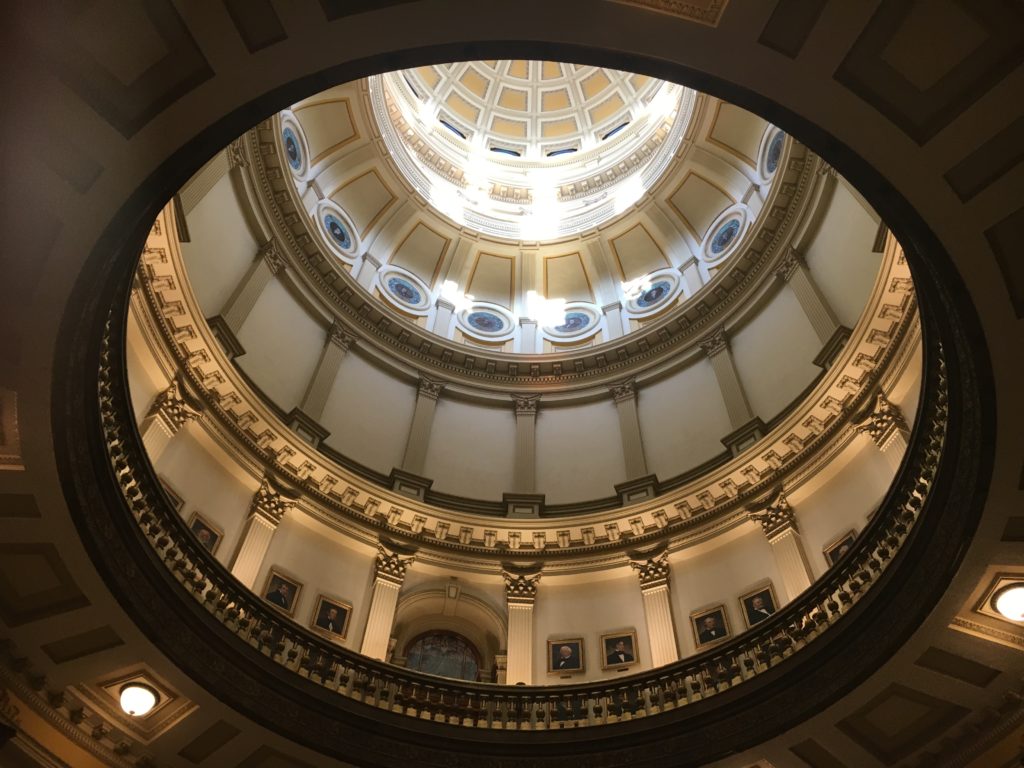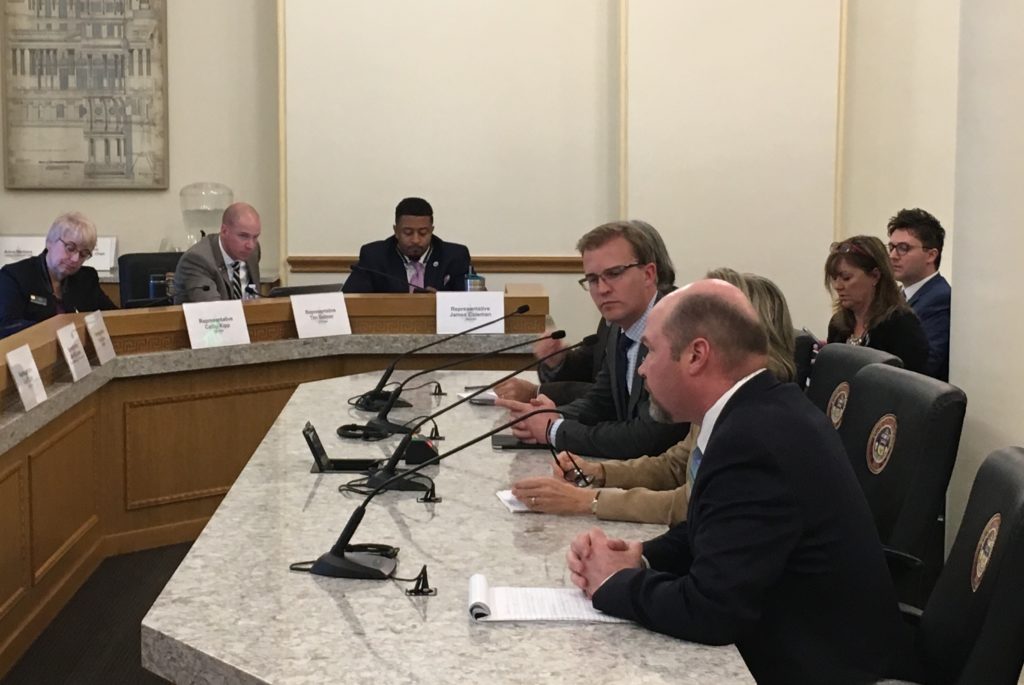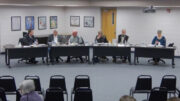By Jeffrey A. Roberts
CFOIC Executive Director
There was no need to wait for Friday’s final adjournment to see that the 2019 Colorado legislative session was a productive one for freedom of information and First Amendment-related issues.
Gov. Jared Polis cinched that on April 12, when he signed into law a groundbreaking transparency bill that ensures the public disclosure of records on police internal affairs investigations.
But it got even better on the last day of the session with the passage of House Bill 19-1324, which targets strategic lawsuits against public participation, also known as SLAPP suits. Now headed to Polis’ desk, the bill would add Colorado to a list of about 30 states that provide a process for the early dismissal of meritless but often costly civil cases filed against people (including journalists) who are exercising their constitutional free expression or petition rights.

“The bottom line is, it’s supposed to protect the little guy from getting a threat or a lawsuit from the big guy who may not want the little guy to be speaking his or her mind about a matter of public concern,” said Sen. Mike Foote, the Lafayette Democrat who sponsored the anti-SLAPP bill with Democratic Reps. Shannon Bird of Westminster and Lisa Cutter of Littleton.
State lawmakers this session also killed the latest attempt to stop the required publication of certain county financial information in newspapers. They passed a bill that encourages local governments to post meeting notices online and – also on the last day of the session – approved a measure to rewrite Colorado’s antiquated jail records law, expanding the amount of information collected and reported to the public about county detention facilities. Another successful bill focuses on teaching media literacy in public schools.
The lone disappointing outcome for open-government and press advocates was the failure, for the second consecutive year, of a bill aimed at curbing a trend among Colorado law enforcement agencies to encrypt all of their radio traffic. House Bill 19-1235 died in the House Transportation and Local Government Committee despite testimony from reporters and editors who spoke about the importance of monitoring police scanners for covering breaking news and keeping the public informed.
Here’s a roundup of the 2019 session’s transparency and First Amendment legislation:
Internal affairs. House Bill 19-1119 upended a long-standing, routine practice among most law enforcement agencies in Colorado to reject requests for internal affairs records by either a blanket policy or a finding that disclosure would be “contrary to the public interest.” Such systematic denials left Coloradans “largely in the dark with regard to allegations and investigations of police misconduct,” concluded a 2018 study by the University of Denver Sturm College of Law.
The new statutory provision, sponsored by Foote and Democratic Rep. James Coleman of Denver, makes files on completed investigations “records of official action” that must be disclosed, subject to certain redactions. It applies only to investigations initiated after the bill’s effective date and only to records “related to a specific, identifiable incident of alleged misconduct involving a member of the public” while an officer is in uniform or on-duty.
For more on the bill, read “Eight things to know about Colorado’s new law requiring disclosure of police internal affairs records.”
Anti-SLAPP. Two University of Denver law professors coined the term SLAPP in the 1980s, but Colorado has had one of the weakest protections against libel and other types of lawsuits that are filed to harass someone for speaking up on an issue. SLAPP suits are a growing problem for activists and news organizations because they can face months or years of expensive litigation.
Modeled after California’s statute, HB 19-1324 establishes an expedited court process in which a defendant in a civil action can file a special motion to dismiss the case based on an assertion that the lawsuit arose from the exercising of his or her constitutional right of petition or free speech.
It allows for an interlocutory appeal, meaning a case can be halted and immediately appealed to a higher court before the expenses of the discovery process are incurred, and it lets a defendant who prevails on a special motion to dismiss recover attorney fees and court costs.
Police radio encryption. The failure of HB 19-1235 likely means the continuation of the scanner encryption trend among Colorado law enforcement agencies. Denver is the latest of 30 or so police departments around the state to go silent or announce an intention to do so because, they say, criminals might listen in and the possible broadcasting of private information might lead to identity theft.
The bill, sponsored by Republican Rep. Kevin Van Winkle of Highlands Ranch, would have required government entities to air dispatch communications without encryption, allowing journalists and members of the public to monitor all but tactical and investigative channels, as they have been able to do for decades until recently.
County jail records. Colorado’s statute on county jail records is so antiquated, as we wrote recently, it still requires jailers to keep inmate information “in a book.” It also requires the collection of only a few data points, making it difficult for the public and policymakers to get a statewide picture of who is incarcerated in county detention facilities.
Under House Bill 19-1297, sent to Polis’ desk Friday on a 34-1 Senate vote, jailers would report inmate deaths, operational capacity and the number of people held for different reasons among several other data elements. A daily record would be available to the public, and the Colorado Division of Criminal Justice would publish statewide and individual jail information “in a searchable and sortable format.”
Meeting notices. Signed into law by Polis on April 25, House Bill 19-1087 gives local governments an incentive to post meeting notices online rather than in a designated physical location, which is how the Colorado Open Meetings Law currently defines “full and timely notice.” They don’t have to fulfill that physical posting requirement if they put a notice online, “with specific agenda information if available,” no less than 24 hours before a meeting.
“We’re not living in the 1800s,” when people would go into town “and see what’s happening on the courthouse window or the town hall window,” said sponsoring Rep. Matt Soper, R-Delta, during a hearing on the bill.
Public notices. Similar to a bill vetoed last year by Gov. John Hickenlooper, House Bill 19-1057 would have allowed counties to publish expenditure and salary reports on their websites instead of publishing the information in newspapers. Only links to the reports would have had to be in newspapers.
Lawmakers who voted against the measure said they didn’t see how it addressed concerns raised in Hickenlooper’s veto message about “reducing transparency” in rural communities that still lack broadband. The Colorado Press Association opposed the bill, which died after a committee hearing.
Media literacy. Also sent to Polis’ desk on Friday, House Bill 19-1110 creates an advisory committee within the Colorado Department of Education to recommend ways to incorporate media literacy into state standards for elementary and secondary education.

“Students are facing the largest and most complex information landscape in human history and they are constantly inundated with information,” said Cutter, who sponsored the bill in the House. “We must prepare them to deal with this.”
School district negotiations. Signed into law by Polis on April 12, House Bill 19-1201 clarifies that school boards can hold closed-door executive sessions to develop negotiating strategies related to collective-bargaining agreements.
The measure, proponents said, is intended to fix an “unintended consequence” of the successful 2014 ballot initiative that opened school district bargaining sessions to the public.
Lobbyist transparency. House Bill 19-1248, sent to Polis’ desk on April 30, requires more frequent disclosure by state Capitol lobbyists about bills they track and the positions taken by their clients. The Denver Post and The Colorado Sun published stories earlier this year about the millions of dollars spent by interest groups, businesses and government entities to lobby state lawmakers.
Capitol workplace harassment. In the wake of a 2018 legislative session marked by the exposure of a workplace culture of sexual harassment and misconduct, the General Assembly passed Senate Bill 19-244, which creates an office of legislative workplace relations.
The office’s records will not be subject to public inspection under the Colorado Open Records Act, but the office will be required to release an annual statistical report showing the number of complaints against lawmakers and how they were resolved. Also public, unless a workplace committee decides otherwise, will be the executive summary of any of investigative report showing it was “more likely than not” that a legislator violated harassment policies.
Campaign finance disclosure. Senate Bill 19-068, signed by Polis on April 1, closes a loophole that allowed noncompliance with “paid for by” disclosure rules for campaign communications delivered between a primary election and 60 days before the general election.
House Bill 19-1318, sent to Polis’ desk on Friday, is designed to illuminate dark money spent on Colorado campaigns. Dubbed “The Clean Campaign Act of 2019,” the bill mandates “paid for” disclaimers on campaign communications and “makes it so that corporations and special interests follow the same type of disclosure rules that candidates already do,” Secretary of State Jena Griswold wrote in a recent column.
An exception in the measure, The Colorado Sun reported, would let donors to labor unions or nonprofits avoid public disclosure if the donor affirms “a reasonable probability” he or she will face harm or harassment.
Follow the Colorado Freedom of Information Coalition on Twitter @CoFOIC. Like CFOIC’s Facebook page. Do you appreciate the information and resources provided by CFOIC? Please consider making a tax-deductible donation.




